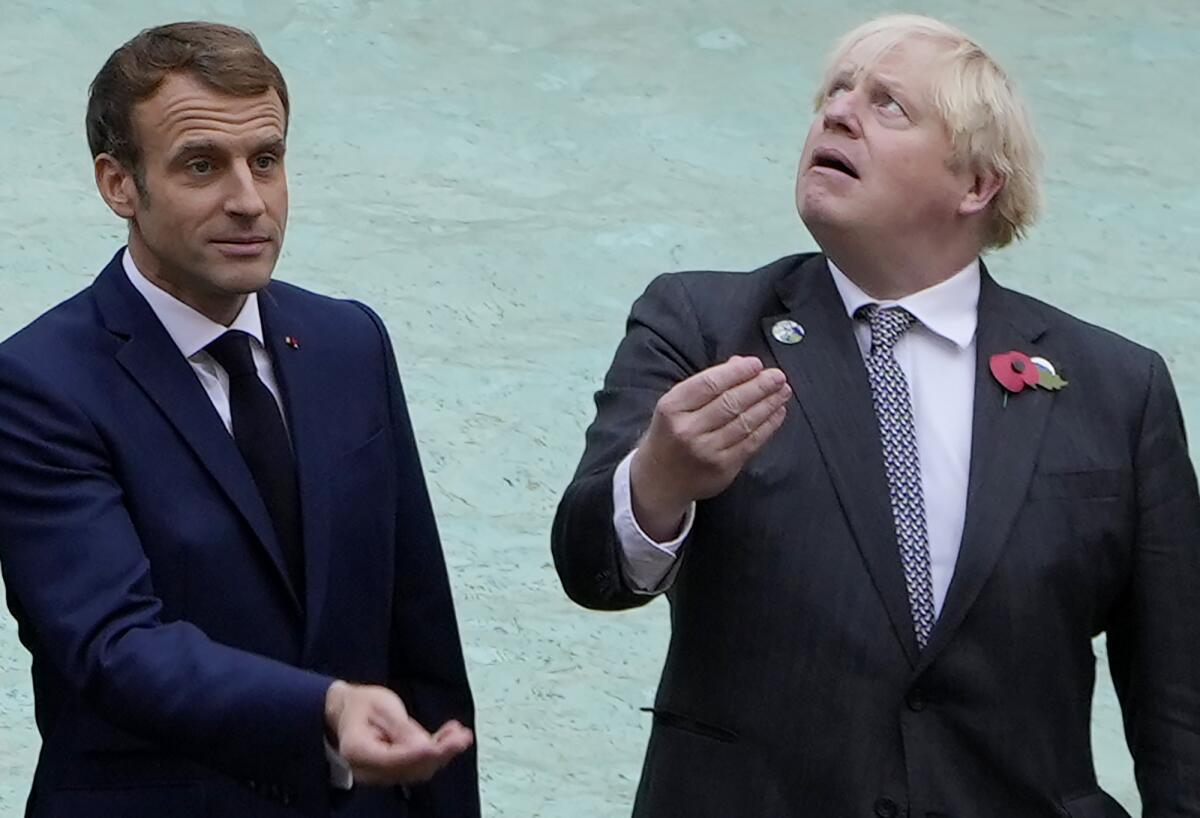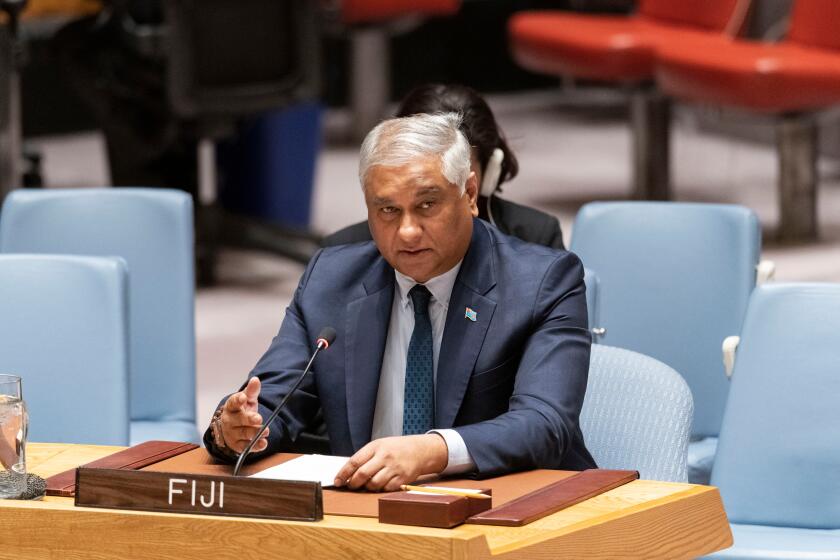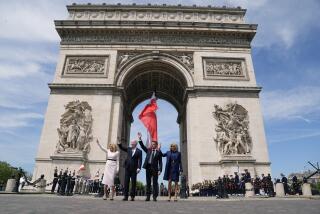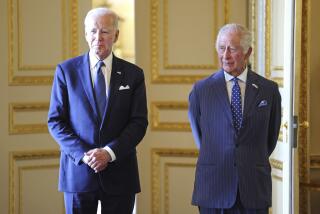U.K.-France spat over fishing rights deepens despite private meeting

- Share via
ROME — French President Emmanuel Macron and British Prime Minister Boris Johnson met privately on Sunday to try to resolve an escalating dispute over fishing in the English Channel — but afterward the two countries appeared farther apart than ever and gave starkly differing versions of the meeting’s outcome.
The post-Brexit spat over the granting of licenses to fish in Britain’s coastal waters threatens to escalate within days into a damaging French blockade of British boats.
After the 30-minute meeting between Macron and Johnson on the fringes of a Group of 20 summit in Rome, a French top official said both leaders agreed there was a need to talk to each other “in a situation of important tensions.” He said measures need to be taken “as soon as possible” to get to a de-escalation.
Britain, however, denied the leaders had agreed to take steps to de-escalate the spat, saying it was entirely up to France to calm the waters.
The U.K. government said in a statement that during the meeting, Johnson “reiterated his deep concern” over France’s rhetoric and “expressed his hope that the French government would de-escalate.”
Johnson’s spokesman, Max Blain, said “our position has not changed.”
“It will be for the French to decide whether they want to step away from the threats they have made in recent days,” Blain said.
“Both in our rhetoric and our actions we have not in any way sought to escalate this. ... The de-escalation would have to come from the French side.”
A second French official said the “difference of views shows a different mindset” and that Paris cares about commitments that have been made and about the French-British relationship.
Only four heads of state from Pacific island nations can attend the climate summit.
Fishing is a tiny industry economically, but one that looms large symbolically for maritime nations like Britain and France. Britain’s exit from the economic rules of the 27-nation bloc at the start of this year means the U.K. now controls who fishes in its waters.
France claims some vessels have been denied permits to fish in waters where they have long sailed. Britain says it has granted 98% of applications from EU vessels, and now the dispute comes down to just a few dozen French boats with insufficient paperwork.
But France’s Minister for European Affairs Clement Beaune on Sunday accused Britain of “targeting” France in a “political choice” and said Britain had breached the Brexit deal agreed by both sides.
“For the EU as a whole, around 90% of the expected licenses have been granted, but all the missing ones are French,” he tweeted.
Macron stressed to Johnson the need to “respect commitments” taken by the U.K and the European Union as part of the Brexit deal, the French presidency said in a statement.
The French official said France “made precise demands regarding licenses to be granted to a precise number of ships” in British waters and around the Channel Islands of Jersey and Guernsey.
He said France and Britain would have talks “in the coming hours and days” on practical details, with the aim to “ease tensions and stabilize the situation.” Britain, however, denied any such talks were planned.
Both sides accuse the other of breaching the Brexit withdrawal agreement. Britain says it is “actively considering” launching dispute settlement proceedings, a formal legal process in the deal, if France does not drop its threats.
France has threatened to bar British boats from some of its ports and tighten checks on boats and trucks carrying U.K. goods if the licenses aren’t granted by Tuesday.
The official declined to say whether France is still ready to impose the sanctions.
“We are not there yet,” he said. He spoke anonymously in accordance with the French presidency’s customary practices.
More to Read
Sign up for Essential California
The most important California stories and recommendations in your inbox every morning.
You may occasionally receive promotional content from the Los Angeles Times.











